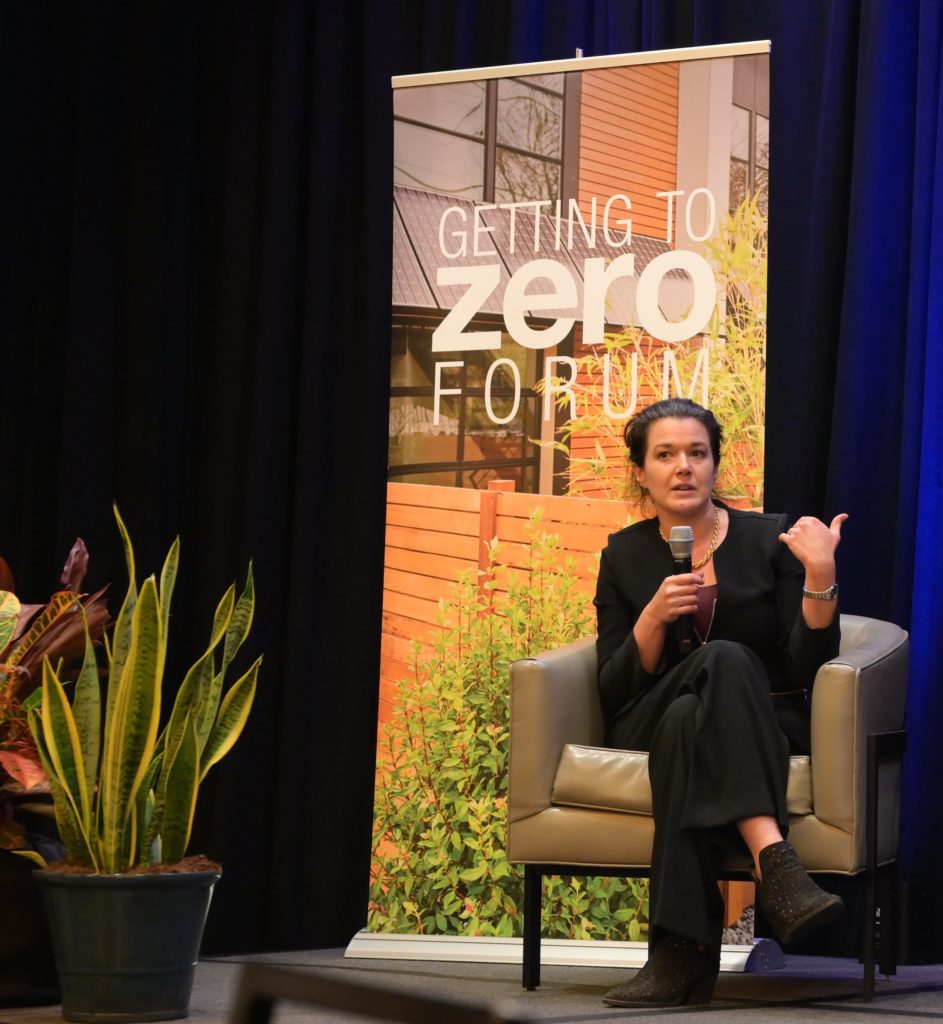Reducing carbon pollution and improving resilience in residential and commercial buildings across the United States was the topic of a House Select Committee hearing on the climate crisis last month. The hearing, “Solving the Climate Crisis: Cleaner, Stronger Buildings,” featured testimony from Anica Landreneau, Director of Sustainable Design at HOK. Anica was a plenary speaker at the recent 2019 Getting to Zero Forum in Oakland talking about the urgent need to reduce carbon emissions from the built environment.
 During her testimony, Landreneau masterfully spotlights the most impactful policy steps that government can take to speed action addressing “operational efficiency in new and existing building stock – targeting net zero or net positive performance, electrification, grid harmonization, renewable energy generation onsite and offsite, land use and development policies, as well as the embodied carbon in our building materials.” Landreneau described a number of specific strategies including development of more stringent energy codes including outcome-based codes, better code enforcement, zero energy and zero carbon policies, electrification, and benchmarking and building energy performance standards for existing building. She also described ways that Congress could support each of these strategies including improving the energy performance of government-owned buildings.
During her testimony, Landreneau masterfully spotlights the most impactful policy steps that government can take to speed action addressing “operational efficiency in new and existing building stock – targeting net zero or net positive performance, electrification, grid harmonization, renewable energy generation onsite and offsite, land use and development policies, as well as the embodied carbon in our building materials.” Landreneau described a number of specific strategies including development of more stringent energy codes including outcome-based codes, better code enforcement, zero energy and zero carbon policies, electrification, and benchmarking and building energy performance standards for existing building. She also described ways that Congress could support each of these strategies including improving the energy performance of government-owned buildings.
The most compelling aspect of Landreneau’s testimony is that most of what she recommends is accessible today. Actualizing the benefits is just a matter of implementing advanced practices that are commonly understood and defined. For example, Landreneau explains, “Half the country is constructing building that will consume energy for 60 or more years based on decade-old energy codes. One of the biggest opportunities to save energy and emissions is to simply bring all of our states and cities up to the most current energy code.”
Read Ms. Landreneau’s full testimony or watch the testimony on You Tube.
